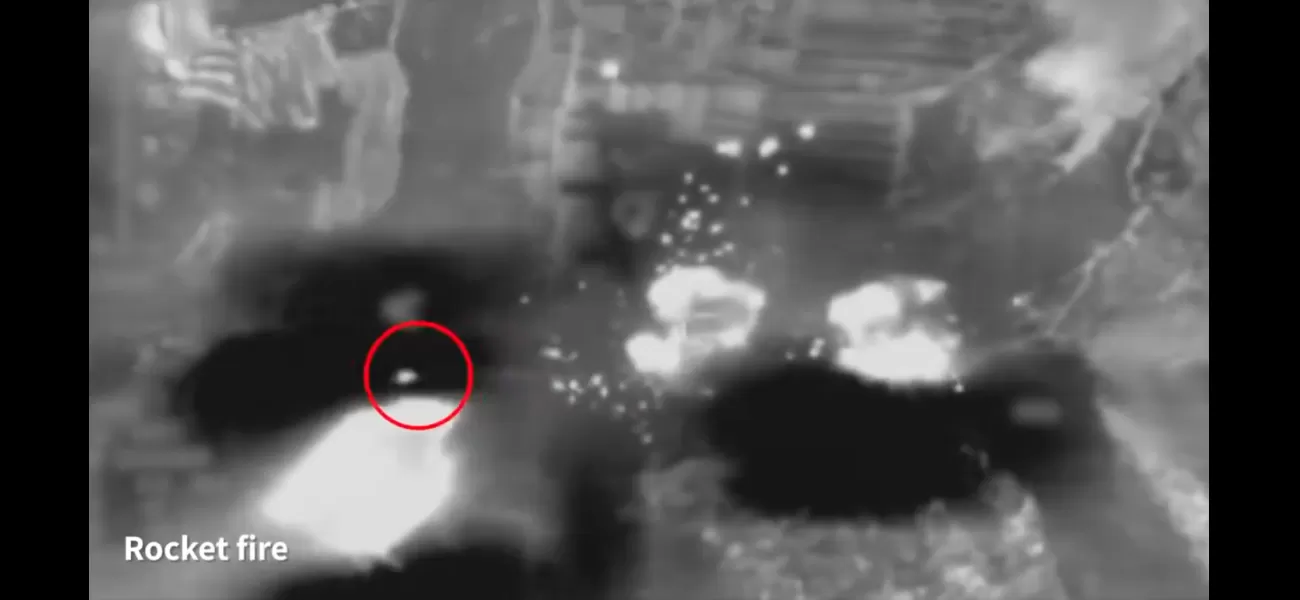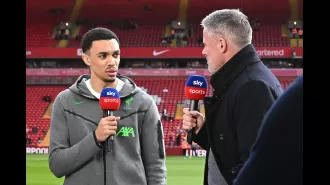Is the recent fighting between Israel and Hezbollah going to result in an all-out war?
Possible paraphrase: "Anticipated war escalation as Hezbollah possesses 150,000 rockets capable of reaching all of Israel."
August 25th 2024.

On Sunday, Israel and Lebanon's Hezbollah engaged in their most intense exchange of fire in months, sparking fears of a full-scale war. However, by mid-morning, both sides claimed that they had only targeted military objectives and the fighting had ceased. Despite this, tensions remained high and here's a breakdown of the current situation.
What happened on Sunday morning? According to Israel, they launched airstrikes with around 100 warplanes to prevent a potential attack from Hezbollah. In response, Hezbollah launched hundreds of rockets and drones at Israeli military bases and missile defense positions in northern Israel and the Golan Heights. This attack was in retaliation for the targeted killing of one of their founding members and top commanders, Fouad Shukur, in an Israeli airstrike in Beirut last month. Hezbollah has stated that Sunday's attacks were just the beginning and they are prepared to strike deeper into Israel in the future. However, they denied Israel's claim of successfully thwarting the attack and did not provide any evidence for their own claims.
The Israeli strikes resulted in the deaths of three militants in Lebanon, while there were no reported casualties on the Israeli side. Lieutenant Colonel Nadav Shoshani, an Israeli military spokesperson, stated that initial assessments showed minimal damage in Israel. However, the situation remains tense.
What are the chances of an all-out war between Israel and Hezbollah? Despite the heavy exchange of fire, a full-scale war has not yet erupted. The lack of civilian casualties and heavy firepower may allow both sides to claim some sort of victory and step back. However, tensions remain high as Hezbollah has been launching rockets and drones at Israel since the start of the war in Gaza, triggered by Hamas' surprise attack on October 7th. Hezbollah and Hamas are allies, both backed by Iran. In response to these attacks, Israel has been conducting airstrikes and the situation has escalated in recent months. So far, more than 500 people have been killed in Lebanon, mostly fighters from Hezbollah and other armed groups, along with over 100 civilians and non-combatants. In northern Israel, 23 soldiers and 26 civilians have been killed. This has also led to tens of thousands of people being displaced on both sides of the tense border.
Israel has made it clear that they want to bring peace to the border and allow their citizens to return to their homes. While they prefer a diplomatic approach through mediators like the US, they are prepared to use force if necessary. Hezbollah officials have stated that they do not want a wider war, but they are ready for one if needed.
What would a war between Israel and Hezbollah look like? The last time these two forces engaged in a full-scale war was in 2006, which resulted in heavy damage and displacement on both sides. It is expected that a future war would be far worse. Hezbollah has an estimated 150,000 rockets and the capability to strike all parts of Israel. They have also been developing advanced drones and precision-guided missiles. A full-scale war could potentially force hundreds of thousands of Israelis to flee, cripple the economy, and force the army to fight on two fronts. In response, Israel has vowed to deliver a crushing blow to Hezbollah, which could devastate Lebanon's civilian infrastructure and economy, already in crisis. This would likely result in the destruction of Hezbollah's strongholds in southern Lebanon.
Would a war involve the US, Iran, and other countries? An all-out war between Israel and Hezbollah could quickly spiral into a regional conflict. Iran is a major supporter of Hezbollah, Hamas, and other militant groups in the Middle East. They have vowed to retaliate for the killing of Hamas' top leader, Ismail Haniyeh, who died in a blast in Iran's capital last month, which was believed to be the work of Israel. Iran-backed groups across the region have been targeting Israeli, US, and international targets since the start of the war in Gaza. The US has pledged unwavering support for Israel and has recently deployed military assets to the region to deter any potential retaliatory strikes from Iran or Hezbollah. The USS Abraham Lincoln has joined another aircraft carrier strike group in the area. In April, a US-led coalition helped shoot down hundreds of missiles and drones fired by Iran towards Israel, and tensions eventually subsided.
What does this mean for ceasefire efforts in Gaza? The US, Egypt, and Qatar have been working towards a ceasefire agreement in Gaza and the release of hostages held by Hamas. These efforts have become more urgent in recent weeks as diplomats see this as the best way to reduce tensions in the region. Hezbollah has stated that they will halt their attacks on the border if a ceasefire is reached in Gaza. However, it is unclear if they or Iran would stop their threatened retaliatory strikes over the killings of Shukur and Haniyeh. Neither side wants to be seen as the cause of a failed ceasefire deal. Despite intense diplomacy, there are still major obstacles to overcome, such as Israel's demand for a lasting presence along two strategic corridors in Gaza, which has been rejected by Hamas and Egypt. High-level talks are set to take place in Egypt on Sunday.
What happened on Sunday morning? According to Israel, they launched airstrikes with around 100 warplanes to prevent a potential attack from Hezbollah. In response, Hezbollah launched hundreds of rockets and drones at Israeli military bases and missile defense positions in northern Israel and the Golan Heights. This attack was in retaliation for the targeted killing of one of their founding members and top commanders, Fouad Shukur, in an Israeli airstrike in Beirut last month. Hezbollah has stated that Sunday's attacks were just the beginning and they are prepared to strike deeper into Israel in the future. However, they denied Israel's claim of successfully thwarting the attack and did not provide any evidence for their own claims.
The Israeli strikes resulted in the deaths of three militants in Lebanon, while there were no reported casualties on the Israeli side. Lieutenant Colonel Nadav Shoshani, an Israeli military spokesperson, stated that initial assessments showed minimal damage in Israel. However, the situation remains tense.
What are the chances of an all-out war between Israel and Hezbollah? Despite the heavy exchange of fire, a full-scale war has not yet erupted. The lack of civilian casualties and heavy firepower may allow both sides to claim some sort of victory and step back. However, tensions remain high as Hezbollah has been launching rockets and drones at Israel since the start of the war in Gaza, triggered by Hamas' surprise attack on October 7th. Hezbollah and Hamas are allies, both backed by Iran. In response to these attacks, Israel has been conducting airstrikes and the situation has escalated in recent months. So far, more than 500 people have been killed in Lebanon, mostly fighters from Hezbollah and other armed groups, along with over 100 civilians and non-combatants. In northern Israel, 23 soldiers and 26 civilians have been killed. This has also led to tens of thousands of people being displaced on both sides of the tense border.
Israel has made it clear that they want to bring peace to the border and allow their citizens to return to their homes. While they prefer a diplomatic approach through mediators like the US, they are prepared to use force if necessary. Hezbollah officials have stated that they do not want a wider war, but they are ready for one if needed.
What would a war between Israel and Hezbollah look like? The last time these two forces engaged in a full-scale war was in 2006, which resulted in heavy damage and displacement on both sides. It is expected that a future war would be far worse. Hezbollah has an estimated 150,000 rockets and the capability to strike all parts of Israel. They have also been developing advanced drones and precision-guided missiles. A full-scale war could potentially force hundreds of thousands of Israelis to flee, cripple the economy, and force the army to fight on two fronts. In response, Israel has vowed to deliver a crushing blow to Hezbollah, which could devastate Lebanon's civilian infrastructure and economy, already in crisis. This would likely result in the destruction of Hezbollah's strongholds in southern Lebanon.
Would a war involve the US, Iran, and other countries? An all-out war between Israel and Hezbollah could quickly spiral into a regional conflict. Iran is a major supporter of Hezbollah, Hamas, and other militant groups in the Middle East. They have vowed to retaliate for the killing of Hamas' top leader, Ismail Haniyeh, who died in a blast in Iran's capital last month, which was believed to be the work of Israel. Iran-backed groups across the region have been targeting Israeli, US, and international targets since the start of the war in Gaza. The US has pledged unwavering support for Israel and has recently deployed military assets to the region to deter any potential retaliatory strikes from Iran or Hezbollah. The USS Abraham Lincoln has joined another aircraft carrier strike group in the area. In April, a US-led coalition helped shoot down hundreds of missiles and drones fired by Iran towards Israel, and tensions eventually subsided.
What does this mean for ceasefire efforts in Gaza? The US, Egypt, and Qatar have been working towards a ceasefire agreement in Gaza and the release of hostages held by Hamas. These efforts have become more urgent in recent weeks as diplomats see this as the best way to reduce tensions in the region. Hezbollah has stated that they will halt their attacks on the border if a ceasefire is reached in Gaza. However, it is unclear if they or Iran would stop their threatened retaliatory strikes over the killings of Shukur and Haniyeh. Neither side wants to be seen as the cause of a failed ceasefire deal. Despite intense diplomacy, there are still major obstacles to overcome, such as Israel's demand for a lasting presence along two strategic corridors in Gaza, which has been rejected by Hamas and Egypt. High-level talks are set to take place in Egypt on Sunday.
[This article has been trending online recently and has been generated with AI. Your feed is customized.]
[Generative AI is experimental.]
0
0
Submit Comment





